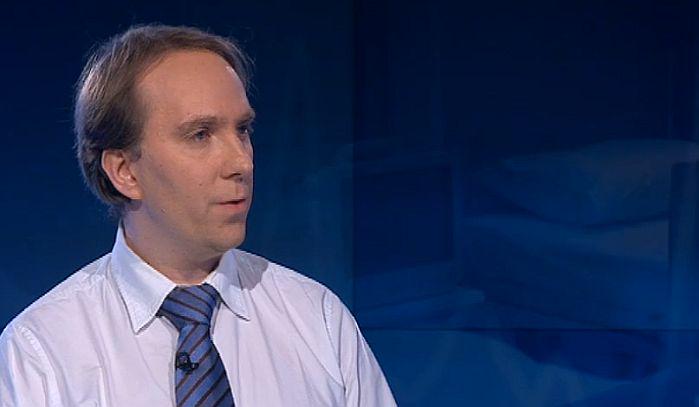
The criminal police department is investigating the case, while the Ljubljana University Medical Center (UKC) is also conducting its own internal investigation. In the TV Slovenija »Odmevi« show, journalist Igor Bergant talked to Dr. Radan.
Your patient's case has raised many questions. But there is one key question – Did you order for a mix of potassium and morphine to be injected into the patient, who was already unconscious and dying, in order to speed up the dying process?
That day the patient was in the last stage of life. The man was suffering great pain and had difficulty breathing. He was already separately receiving morphine. I made the decision for an infusion of potassium to be prepared as an act of provocation. The patient never received the potassium. The infusion was prepared, however it was never injected into the patient. The cause of his death was clear and connected to his illness. It was expected. His fatal illness brought him closer to death in just a few hours and minutes.
We received information that you were not alone in the patient's room at that time. You ordered the nurse to inject the potassium into the patient. She allegedly warned you twice about the procedure. Is that true?
The nurse, of course, asked whether she should go ahead with preparing the infusion of potassium, and later she probably did believe that the potassium was flowing into the patient. However the potassium never entered the patient's body. The potassium flowed out beside the body. My intention certainly wasn't to expose our nurse-related problems. The issue I wanted to raise with this act is completely different. It has been taken out of context by the oversight commission. The truth is I wanted to warn about an even bigger and more alarming occurrence – the lack of communication within the hospital’s medical team. Working in the intensive care unit is hard and more complex than in other medical units. We depend on good communication, and on a good and quality transfer of information.
Are you the only one that checked whether the deadly potassium wasn't flowing into the patient’s body?
Never in my life have I given a patient any kind of dosage which would prematurely end his life. Never. Not in any case. That patient only received morphine.
At that time there were reportedly more people in the room, the nurse and other doctor trainees. What did they know?
Look, apart from the lack of communication, another problem is overcrowdedness and too little staff in the intensive care units. At that time there were a few people around the patient, however because of the great workload the nurses were constantly moving from one patient to another. Because of that people didn't realize or understand the point I wanted to raise. That the patient received potassium, when in truth he really did not.
Your provocation was extreme. How can you say that you didn't expose the nurses with your action?
Look, only two nurses knew about it. The chief nurse, who prepared the potassium, asked me again about the procedure, and I confirmed. Later, when the patient died after receiving the morphine, the nurse asked me again, whether we should write down the potassium in the records. I clearly said no, we won't write it down, because the patient never received it. And that's the truth.
You say it was all a provocation. That you yourself spread the rumour about the potassium, and then at the same time made sure that there was no post-mortem examination. Why did you do that? A post-mortem could have finally cleared you of any guilt that many are now talking about.
Yes, I agree. But I would also like to explain why I didn't drag the nurses into this whole story. If I exposed the nurses, then in a way I would have shifted the blame on them. And that certainly wasn't my intention. I didn't decide for a post-mortem because as far as I was concerned the cause of death was more than clear. The next day when my colleagues found out that an infusion of potassium flowed, I said yes, it did flow, but I didn't explain where it flowed. Look, potassium is huge provocation. Everyone should have jumped up immediately, at the very moment. But unfortunately that didn't happen. The whole following day until 11 a.m. there was still time for my colleagues to demand a post-mortem examination.
Was the fact that a post-mortem examination wasn't conducted also a provocation on your behalf?
Yes, of course, absolutely. And why did I decide for such an extreme provocation? You have to know that there were already some attempts in recent years to try settle the issue of communication and cooperation among the doctors and among the doctors and nurses. However this kind of communication, which is critical in the intensive care units, which are already overloaded with work, is non-existent.
With this provocation you horridly exposed yourself.
I never expected such a twist and I never expected the situation to escalate in such a confusing way.
We can also hear rumours about your alleged exposure to narcotic substances. Have you ever been under the influence of psychotropic substances?
Never in my life have I been under the influence of psychotropic substances, not at home and not at work. All my colleagues who know me can confirm the quality of my work. The quality of my work can also be confirmed by all of my patients and their relatives. Look, I work in the intensive care unit, I'm also involved in secondary helicopter transport. I think that having such a demanding work position makes it very difficult to become an addict. It's all lies.
B. R.; translated by K. J.

































































